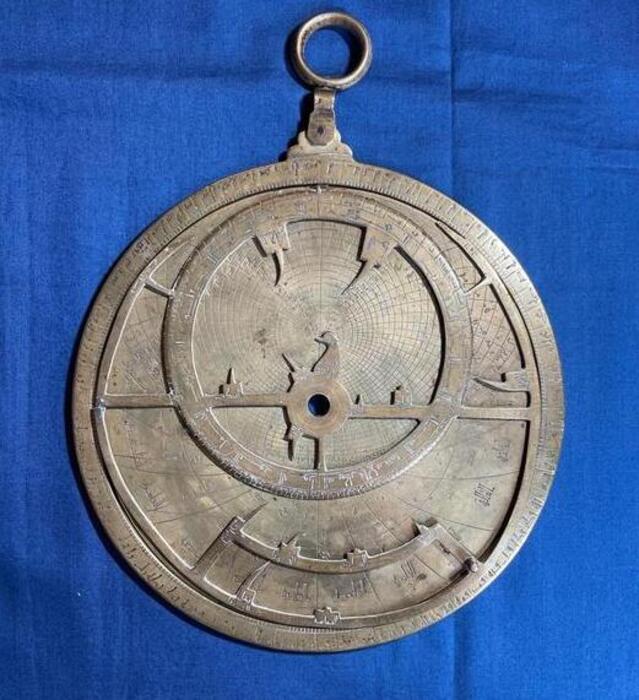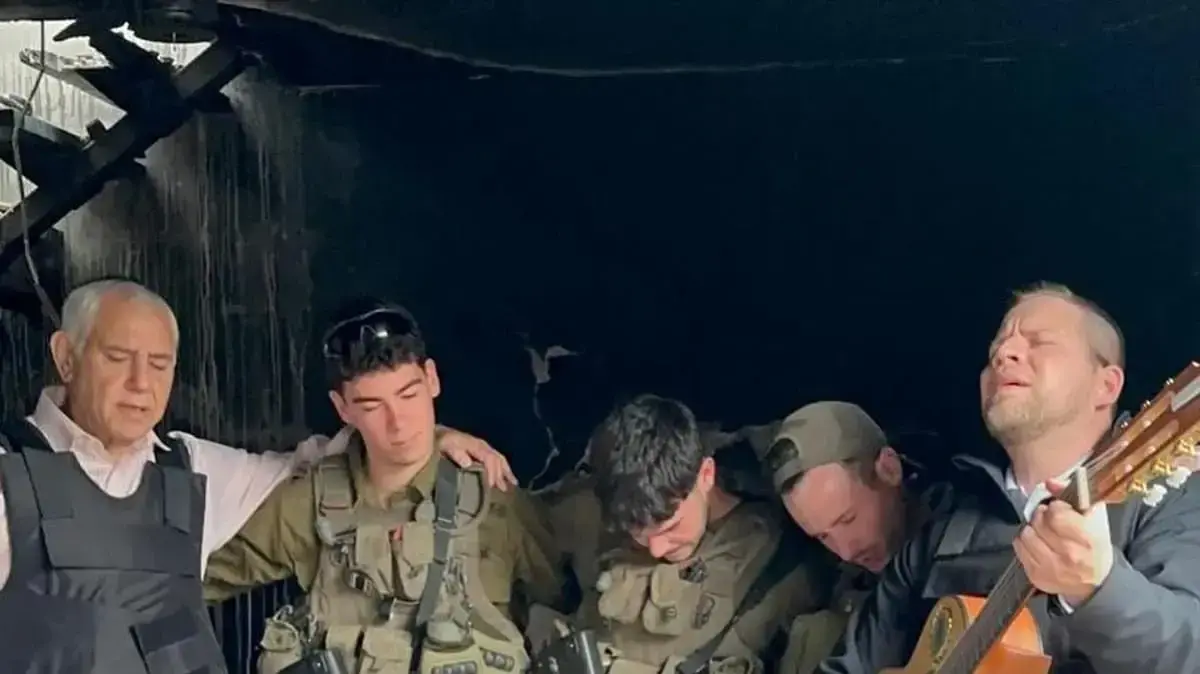Languages do not understand purism when they are exported.
It is impossible to keep them intact when their speakers are surrounded by other alphabets and phonemes.
Keeping them is almost an act of rebellion;
claim.
For this reason, it is normal for the Hassanía spoken by Nadhira's parents to become Hassañol, a hybrid that escapes her when she talks to her sister with whom she grew up in the Canary Islands.
For Halima's generation, born in Madrid but with Moroccan ancestry, her dariya level is "touristy."
Fathi, however, discerns between Arabic, Spanish and English like no one else, as he is a translator.
With more or less pristine languages, they all share the same goal: not to lose them.
Each variant mutates and enriches itself, although they also run the risk of being absorbed by other predominant languages.
These eight protagonists are united by the land and memories that are condensed in language, music, stories, poetry or childhood programs.
They are a kind of direct passageway to the secret conversations between the women of the family that Najat remembers from his childhood in the Rif, or to the children's fables in Soninké that Boubou's grandfather told by the light of the bonfire in his village in Mauritania.
In North Africa, classical Arabic is the root of more than twenty lexical families, from which a myriad of dialects are derived, loaded with sounds and expressions that are nothing like each other.
This enormous wealth is the reflection of the mosaic of cultures and peoples of the same region.
So different and so the same.
Nadhira Mohamed Buhoy, 31, Western Sahara
Maintaining the hassanía is my claim;
my tool in front of the world
City of origin
: Smara, Sahrawi refugee camps in Tindouf (Algeria)
Language
: Hassanía
Speakers
: more than nine million
Countries where spoken
: Western Sahara, Mauritania and Algeria
Alphabet
: Classical Arabic or Latin script is used with certain numbers to indicate phonemes that do not exist in Roman languages
Official status
: Hassanía is the national language, but the official languages in the Sahara are classical Arabic and Spanish
Halima Brini, 26, Morocco
I speak Moroccan tourists;
is part of here and there
City of origin
: Halima was born in Madrid;
her maternal family comes from Casablanca and her father is from El Jadida
Language
: Moroccan
Speakers
: more than 44 million
Countries where it is spoken
: coast and center of Morocco
Alphabet
: Classical Arabic or Latin alphabet calligraphy is used with certain numbers to indicate phonemes that do not exist in Roman languages
Official Status
: Classical Arabic has always been the official language.
And since 2011, also the Riff, as a result of the protests of the Arab Spring.
However, Moroccan is one of the most widely spoken languages and a lingua franca in all colloquial areas
Najat El Hachmi, 41 years old Rif
I cannot separate the affective from the linguistic.
The mother tongue is linked to the mother, the person who transmits the first affection to us
Hometown
: Nador in the Rif region
Language
: Riffian, tarifit
Speakers
: seven million
Countries where it is spoken
: Rif region (northern Morocco and Algeria) and in Melilla (Spain)
Alphabet
: tifinagh
Official status
: the Riff is official in Morocco since 2011, as a result of the protests of the Arab Spring.
Curiosities
: it has many loanwords from Spanish, such as the verb “flipar”.
Boubou Kamara, 64 years old Mauritania
Losing your language is losing your roots, it is losing your cultural identity
Hometown
: Dafor
Language
: soninké
Speakers
: 1.7 million
Countries where spoken
: Mali, Mauritania, Senegal and Gambia
Alphabet
: Latin, but it is a fundamentally oral language
Official status
: not official in any country, but considered a national language in Mali, Mauritania and Senegal
Curiosities
: the Soninké language, like the ethnic group, come from the city of Soní, a name that was given in the time of the pharaohs to the current Aswan, in Egypt
Fathi Sayed, 60 years old Egypt
My mother tongue takes me back to when I was a child and I woke up with the stories on the radio
Hometown
: Cairo
Language
: Classical Arabic and Egyptian
Speakers
: Classical Arabic is spoken by about 280 million people, it is the fifth most widely spoken language in the world and the Egyptian variant is dominated by 83 million
Countries where spoken
: Egypt
Alphabet
: Arabic
Official status
: official language
Curiosities
: Spanish preserves 25,000 words of Arabic origin.
And more than 5,000 of them are used frequently today.
But if this language is characterized by something, it is by its multiple words to designate the same element.
There are, for example, more than 300 words to name the lion and, although not all of them are used anymore, ten of them are still widely used, depending on whether one wants to refer to the strength, solemnity or bravery of the animal.
Luz is another example.
It is known as
dau'un
if it is a warm light and
nur'un
to quote the moonlight.
A distinction is also made between
almátar
, which is the rain that causes harm, and
algaiz
when it is beneficial.
Khaled Ahmed Azzouz, 45 years old Libya
In Spain, not all immigrant children have access to study their official Arabic language
Hometown
: Tripoli
Language
: Libyan Arabic
Speakers
: 4.5 million
Countries where spoken
: Libya
Alphabet
: Arabic
Official status
: language spoken without grammatical rules that in turn has three variants, but they are not given official status.
The official language in Libya is Standard Arabic
Trivia
: Libyan Arabic nouns have three grammatical numbers: singular, plural and dual, which refers to two units.
The
paucal
number
(when it refers to less than ten) is also used in some nouns
Mariam Barouni, 35, Tunisia
In the Maghreb they tell us that we are the ones who speak singing
Hometown
: Yerba
Language
: Tunisian Arabic, also known as Dariya (dialect) or Tunisian
Speakers
: 11 million
Countries where spoken
: Tunisia and Algerian border
Alphabet
: Arabic and Latin
Official status
: it is a Maghrebian dialect without official status.
The official language in Tunisia is Arabic.
No official recognition or standardization for Tunisian Arabic was granted in the country until 2011
Curiosities
: the linguistic classification of Tunisian is a controversial matter: some linguists consider it an independent language and others believe that it is a dialect of Arabic.
Since the country's independence it has been widely used in the media and in literature, and since the 2011 revolution, various initiatives have been carried out to promote its use.
One of them was that of the Tunisian Ministry of Youth and Sports: they published a version of their website in Tunisian, but they had to close it after a week because a survey concluded that more than half of users were against it. the idea
Amina Gobbi, 50 years old Algeria
When I listen to songs in chaoui my eyes fill with tears
City of origin
: Tébessa, in the north of the country, just over 40 kilometers from the border with Tunisia
Language
: chaoui
Speakers
: almost three million
Countries where it is spoken
: Amazigh is the language of the indigenous population throughout North Africa and Chaoui is one of its four main ramifications.
This dialect is spoken mainly in eastern Algeria
Alphabet
: Classical Arabic or Latin alphabet calligraphy is used with certain numbers to indicate phonemes that do not exist in Roman languages
Official status
: Classical Arabic and French are the official languages and Amazigh has been national since 2002, although there is a movement against it, since not being a language as such, but a family with multiple variants, the choice of just one of them relegates to a second category the others
FUTURE PLANET can follow on
,
and
, and subscribe
here
to our 'newsletter'
.
Credits
Audio coordination and production: Lola Hierro and Noor Mahtani
Format: Brenda Valverde and Alberto Quero
Art direction: Fernando Hernández
Design: Ana Fernández
Layout: Alejandro Gallardo
Audio production: José Juan Morales
Future Planet Director: Lola Huete Machado
This Planeta Futuro / ELPAÍS special is possible thanks to the alliance with the Bill and Melinda Gates Foundation












/cloudfront-eu-central-1.images.arcpublishing.com/prisa/KMEYMJKESBAZBE4MRBAM4TGHIQ.jpg)


